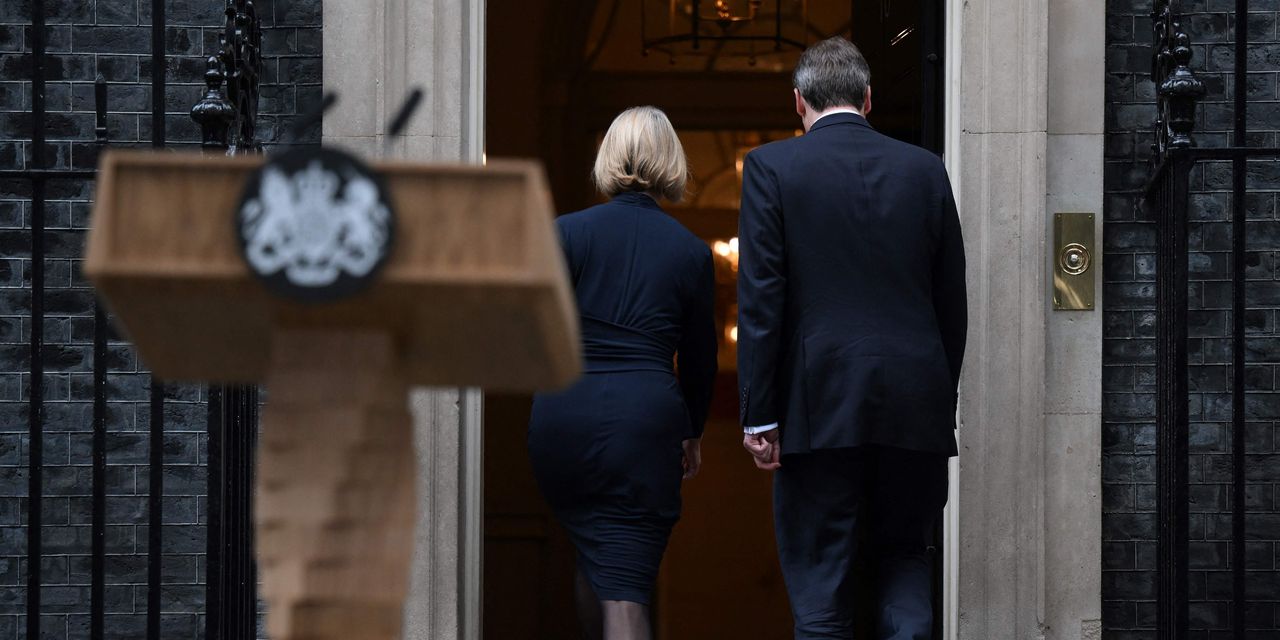As Liz Truss stepped down from a turbulent and record-short stay as U.K. Prime Minister on Thursday, the question is what’s next from the country whose politics have taken investors on a roller-coaster ride over the last several weeks.
Truss has said she would exit the top job as soon as the Conservative party holds a contest to replace her, in an election likely by next week.
The rules governing that contest have yet to be announced, but key lawmaker Graham Brady said a new prime minister will be in place ahead of the fiscal statement due on Oct. 31.
Each candidate will need to get100 nominations from Conservative lawmakers by 2 p.m. local time on Monday.
If three candidates reach that threshold, there will be a vote to narrow that to two. The top two then will be subject to an indicative vote of lawmakers, before the broader party electorate will get to vote online.
Former Chancellor of the Exchequer Rishi Sunak was holding a narrow lead over his former boss, ex-Prime Minister Boris Johnson, in betting markets on Friday. The only other candidate even close to those two is Penny Mordant, the leader of the House of Commons.
Defense secretary Ben Wallace, who some thought might want to run himself, said he’s leaning toward supporting Johnson.
The last U.K. general election was in December 2019 and the maximum term of five years for a U.K. parliament means the official dissolution will happen in December 2024. The Conservative party is unlikely to risk such an election before that time.
A recent poll by the Electoral Calculus found that Conservatives would not even make it as an opposition party should an election be held now, with a prediction they’d win just 24.1% of seats. That’s largely due to the historic unpopularity of outgoing Truss — the lowest ever for any U.K. political leader.
